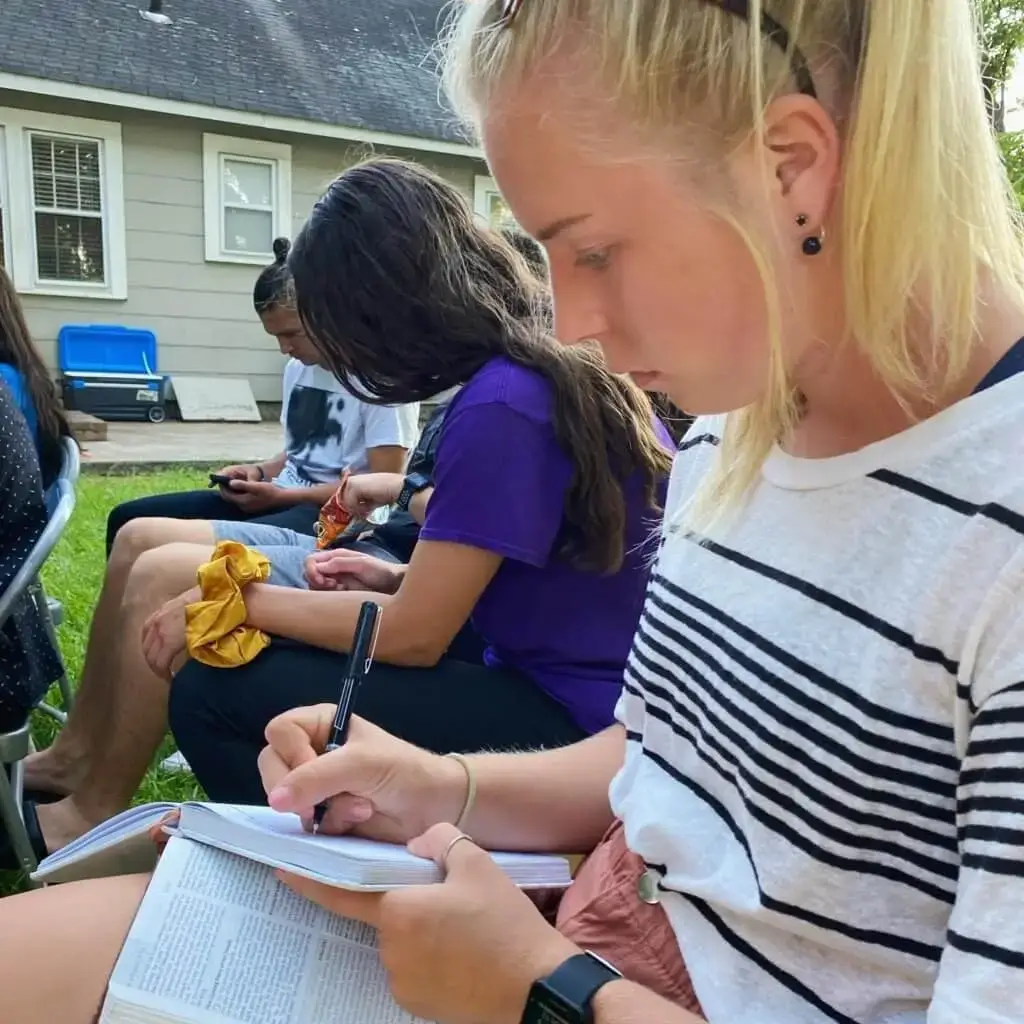There are millions (literally 22,800,000 of them) of Google search results for “new year resolutions.” Each new year is the fresh start to finally get serious about (fill in the blank).
According to Forbes, improving mental health, financial health, and physical health are some of the most common resolutions set for 2023.
At the start of a new year and a new semester, resolutions offer the hope of a new “you.” In that same article, the author states that when resolutions are set “81% of respondents feel confident in their ability to reach their goals, and only 5% lack this confidence.” However, another study found that, unfortunately, 64% of people will give up on their resolutions by the end of January. For whatever reason, the excitement and the commitment wane, and the temptation to fall back into our old rhythms persists.
As we begin this new year and a new semester, how do we help students practically set goals and achieve them? How do we help them to not give up when they struggle but to keep going? How do we live this out by example as we also try to mature and grow as believers, ministers, and healthy, functional people in society?
Truth be told, I don’t set New Year’s resolutions. Maybe it’s because of the negative and often short-lived connotation that I have associated with New Year’s resolutions over the years. However, I do like to take time for what I call “resets.” Resets are opportunities to evaluate, set, and implement goals within a shorter period of time. For those of us who live on the semester system, resets are perfect because we have multiple times a year built in automatically for a reset, or for a fresh start.
This is the outline I use for myself, but also as a guideline for conversations with students as I invite them to do the same. It has helped me to be more intentional and establish rhythms in my schedule, including the proper allotment of time for a more holistic and balanced life to be more effective in life and ministry for the long term.
First, begin with prayer and evaluation. Ask the Lord to give you a realistic and accurate picture of your life. Look at all parts of your life and be honest with where you are and where you want to be spiritually, mentally, physically, relationally, financially, academically, etc. Evaluate what rest looks like for you. As you evaluate these different areas, write down your thoughts.
“Make known to me my wrongdoing and my sin.” Job 13:23b
Next, using this evaluation, set SMART goals. Goals that are specific, measurable, achievable, realistic, and timely. Ask yourself what you want to accomplish just this semester. Where do you want to be in each of these areas at the end of the semester? Then identify 1-2 goals per area (or for multiple areas of your life if not all) for this season based on your evaluation and these questions. I write them down in my prayer journal and commit them to the Lord, asking for His help and wisdom as I go. Also, because it’s written out in my prayer journal, prayer is kept as a priority in accomplishing these goals.
“Commit your way to the LORD, Trust also in Him, and He will do it.” Psalm 37:5
Then, finally, begin to establish daily and weekly rhythms that will allow you to incorporate these goals into your life. Does your calendar control you or do you control your calendar? What in your schedule do you need to say no to and/or give up? We can’t do everything, and we might need to say no even to some “good” things in order to say yes to the new things we are trying to establish in our rhythms. Throughout the semester, I will often evaluate how I’m doing and make adjustments as I need to, even change a goal or two. Through this practice, I’ve learned how important it is to be thankful and celebrate the little things as much as it is to celebrate the big ways God has worked throughout this time. He makes us new. Ultimately, any lasting change we see is Christ at work in us and not our behavior modifications.
“Create in me a clean heart, God, And renew a steadfast spirit within me.” Psalm 51:10
While implementing new rhythms that will help you meet your goals for better overall health and growth, you will face struggles and setbacks. As you personally reset or as you walk with students through these resets, it’s important to remember and trust the truths we see in Scripture. It’s important during this time to remember that you walk with the One who has set you free. Give yourself some grace. All of us struggle with finding and maintaining the balance 100% of the time, but continue to fight for it. It is worth it. He is worthy of it!Psalm 26:3: “For your steadfast love is before my eyes, and I walk in your faithfulness.”
Kimberly Andrews is the Lead Campus Minister at the University of Alabama. See more of her ministry at @uabcm.
This article was originally published at CollegeMinistry.com.






